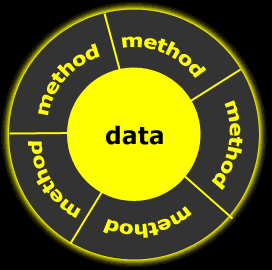 There are so many computer programming languages that newcomers and around-IT people get confused very often. Which language should I learn? What is better C or Perl? What is SQL? These are the questions posted forums and newsgroups where programmers hang out.
There are so many computer programming languages that newcomers and around-IT people get confused very often. Which language should I learn? What is better C or Perl? What is SQL? These are the questions posted forums and newsgroups where programmers hang out.
The Language Guide website attempts to tell the difference between 40 or so most popular programming languages. It provides a brief history of each language, key features listings, sample programs, and links to other resources about each language.

 Pretty often, in the mailing lists, people ask why should they use one solution instead of another. There is a similar
Pretty often, in the mailing lists, people ask why should they use one solution instead of another. There is a similar  By means of
By means of